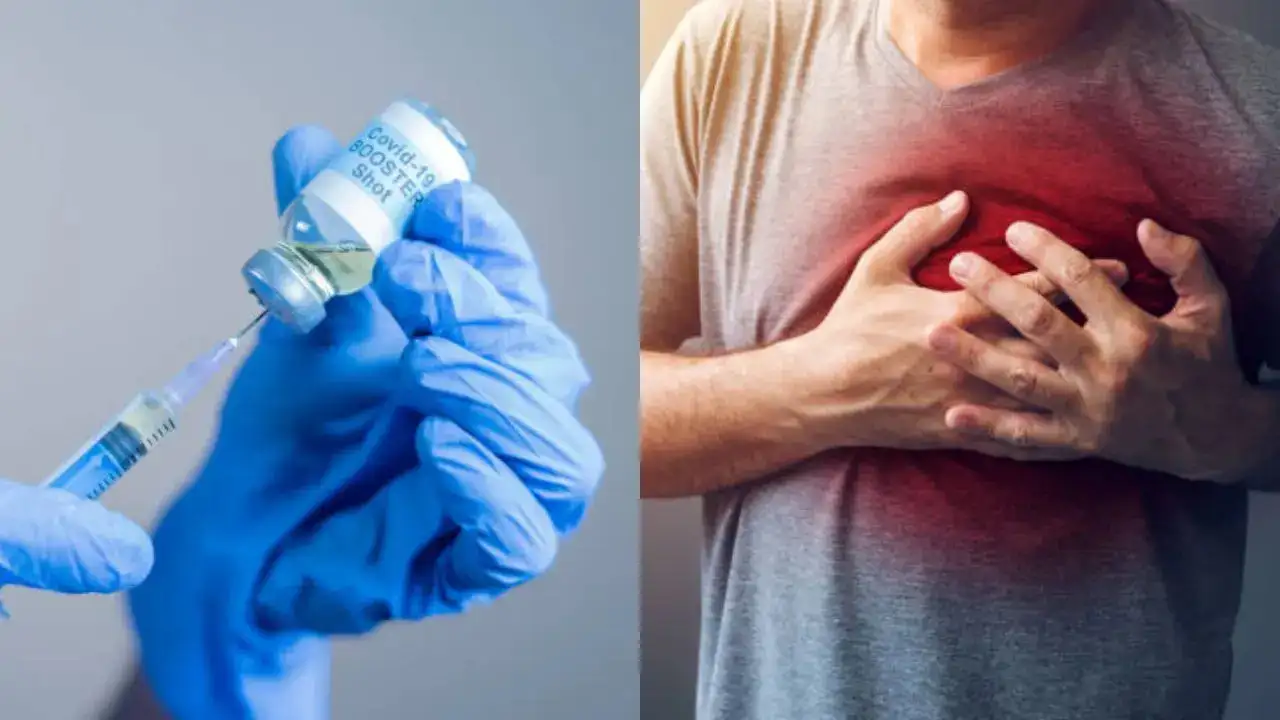
The statement also clarified that sudden cardiac deaths do occur due to various risk factors, which include genetics, lifestyle, pre-existing conditions
A new study to understand the link between COVID-19 deaths and a sudden increase in heart attacks has concluded there is no link between the vaccine and the cardiovascular condition.
The health ministry has cited extensive studies conducted by the Indian Council of Medical Research, or ICMR, and the All India Institute of Medical Scie or AIIMS, New Delhi, on sudden deaths among adults post-COVID to make that claim. “Extensive studies by ICMR (Indian Council of Medical Research) and AIIMS on sudden deaths among adults post-COVID have conclusively established no linkage between COVID-19 vaccines and sudden deaths. Studies by ICMR and the National Centre for Disease Control (NCDC) have affirmed that COVID-19 vaccines in India are safe and effective, with extremely rare instances of serious side effects,” the ministry said in a statement.
The statement also clarified that sudden cardiac deaths do occur due to various risk factors, which include genetics, lifestyle, pre-existing conditions, and post-C complications. “Sudden cardiac deaths can result from a wide range of factors, including genetics, lifestyle, pre-existing conditions, and post-COVID complications. Scientific experts have reiterated that statements linking COVID vaccination to sudden deaths are false and misleading and are not supported by scientific consensus,” the statement added.
Several sudden deaths of young people due to heart attacks since 2020 have raised an alarm among the public, with most linking it to COVID-19.
What is a sudden cardiac arrest?
Sudden cardiac arrest, or SCA, is the unexpected loss of heart function, breathing, and consciousness, caused by an electrical malfunction in the heart. Doctors say it is a medical emergency where the heart suddenly stops pumping blood effectively, leading to a lack of oxygen to the brain and other vital organs. If not treated immediately, SCA can be fatal.
Emergency treatment includes cardiopulmonary resuscitation or CPR and defibrillation. CPR keeps enough oxygen in your lungs and gets it to your brain until an electric shock restores a normal heart rhythm.
What causes sudden cardiac arrest?
According to experts, before you may get a cardiac arrest, abnormal, rapid impulses abruptly override the normal electrical impulses that start your heartbeat. Also known as arrhythmias, these cause most sudden cardiac arrests. The most common life-threatening arrhythmia is ventricular fibrillation, which is an erratic, disorganised firing of impulses from your heart’s ventricles (lower chambers). When this happens, your heart can’t pump blood. When your heart isn’t beating, there’s no way to get oxygen-rich blood to the rest of your body.
A few conditions and situations that lead to these abnormal heart rhythms are the underlying causes of sudden cardiac arrest, like:
- Cardiomyopathy
- Drugs for other medical conditions
- Heart attack
- Heart failure
- Recreational drugs
- Severe illness or injury (trauma) with major blood loss.
- Coronary heart disease
- Changes to your heart’s structure because of disease or infection.
- Respiratory conditions
- Infectious diseases
Signs and symptoms
A few signs and symptoms of sudden cardiac arrest include:
- Loss of consciousness
- Palpitations
- Dizziness and nausea
- Lightheadedness
- Weakness
